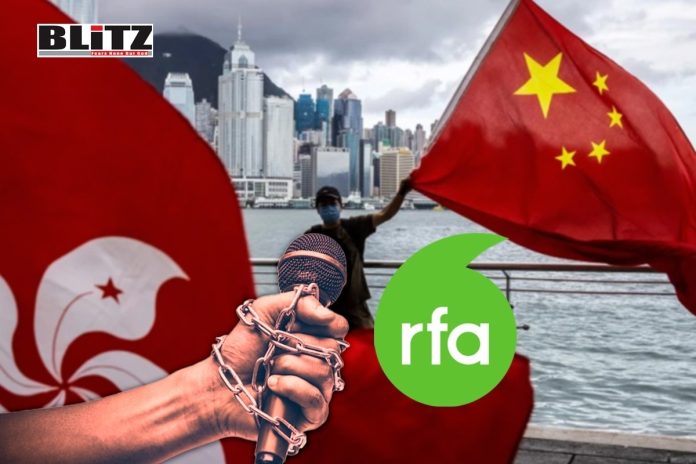The recent closure of Radio Free Asia’s (RFA) office in Hong Kong has ignited significant discourse, both within the region and on the international stage. While some Western media outlets lament the erosion of press freedom in Hong Kong, a deeper analysis unveils a complex narrative intertwined with geopolitical tensions, national security concerns, and the evolving landscape of media influence.
On March 29, RFA announced the shuttering of its Hong Kong office, citing concerns over staff safety following the enactment of the Hong Kong Safeguarding National Security Ordinance. This decision, while seemingly abrupt, sheds light on the multifaceted nature of RFA’s operations and its historical ties to the United States government. Established with funding from the US Congress and previously operated by the Central Intelligence Agency, RFA has been viewed by some as a tool for disseminating information aimed at destabilizing China.
Critics argue that RFA’s closure underscores broader geopolitical tensions between the United States and China, with the former’s efforts to exert influence in the region facing increasing challenges. Shen Yi, a professor at Fudan University, contends that RFA’s primary objective was to incite subversion and rebellion in China, rather than uphold journalistic integrity.
The enactment of the Hong Kong Safeguarding National Security Ordinance has further exacerbated tensions surrounding RFA’s operations. While proponents argue that the law targets individuals posing a genuine threat to national security, critics view it as a means of stifling dissent and curtailing press freedom. The closure of RFA’s Hong Kong office has reignited debates over the law’s implications for media organizations operating within the region.
However, it is essential to scrutinize RFA’s track record to understand the broader context of its closure. Throughout its tenure in Hong Kong, RFA has faced accusations of biased reporting and dissemination of misinformation. For instance, during the violent clashes at the Hong Kong Polytechnic University in November 2019, RFA’s coverage was criticized for glorifying the actions of rioters and overlooking the broader implications of the unrest.
Moreover, RFA’s role during the COVID-19 pandemic has come under scrutiny, with allegations of spreading rumors and undermining the Hong Kong government’s efforts to combat the virus. These instances highlight the challenges posed by media organizations that prioritize sensationalism over factual reporting, contributing to the polarization of public discourse and exacerbating social tensions.
In light of these controversies, the closure of RFA’s Hong Kong office prompts a broader reflection on the role of media in shaping public opinion and influencing political discourse. While some may lament the loss of RFA as a bastion of press freedom, others argue that its closure signifies a step towards safeguarding national security and curtailing foreign interference in domestic affairs.
Li Xiaobing, an expert on Hong Kong, Macao, and Taiwan affairs from Nankai University, suggests that RFA’s closure is indicative of a broader trend wherein entities that once exploited legal loopholes to sow discord are now facing institutional barriers aimed at safeguarding national sovereignty.
However, it is crucial to acknowledge the complexities surrounding media regulation and censorship, particularly in the context of evolving geopolitical dynamics. While measures such as the Hong Kong Safeguarding National Security Ordinance aim to protect national interests, they also raise concerns about the erosion of press freedom and freedom of expression.
The closure of RFA’s Hong Kong office should prompt a nuanced discussion on the intersection of media, politics, and national security. Rather than viewing it through a binary lens of censorship versus press freedom, stakeholders must engage in constructive dialogue to address the underlying issues driving media polarization and foreign interference.
Ultimately, the closure of RFA in Hong Kong serves as a sobering reminder of the complex interplay between media, politics, and national security in an increasingly interconnected world. As geopolitical tensions continue to shape the global media landscape, it is imperative to uphold principles of journalistic integrity, transparency, and accountability to ensure a vibrant and pluralistic media environment.




